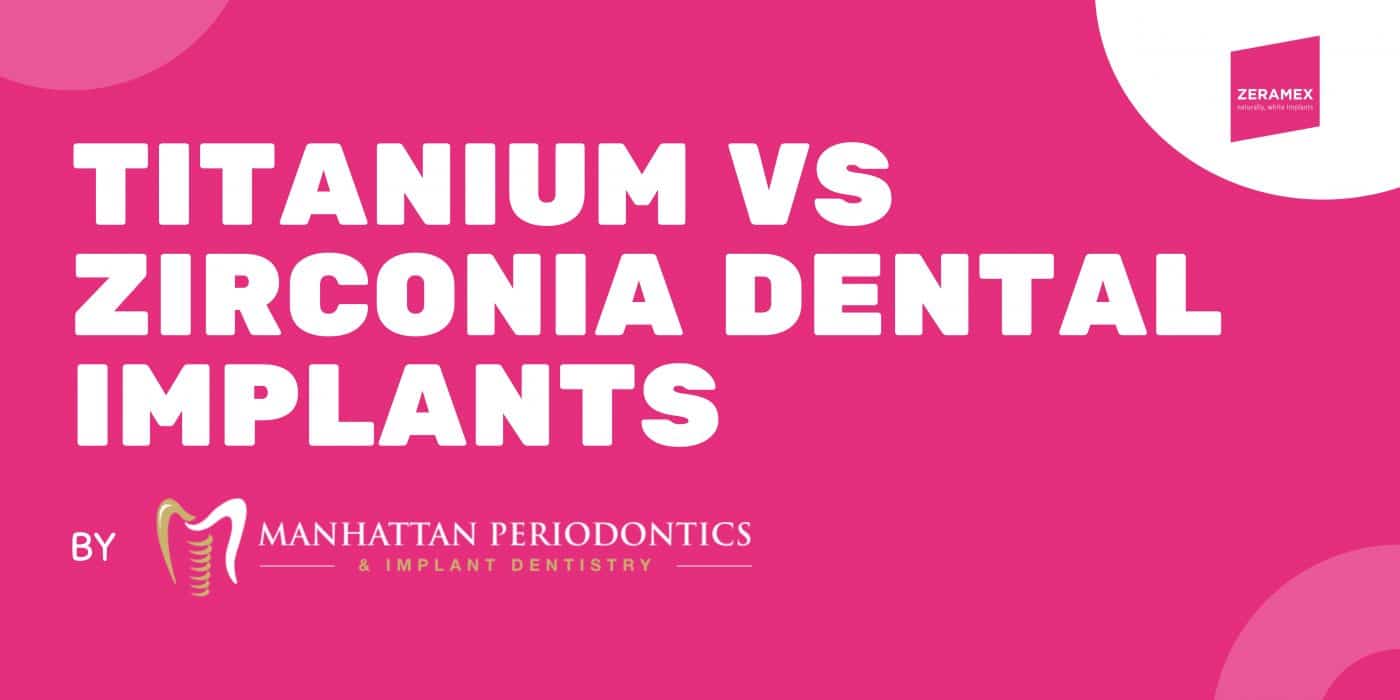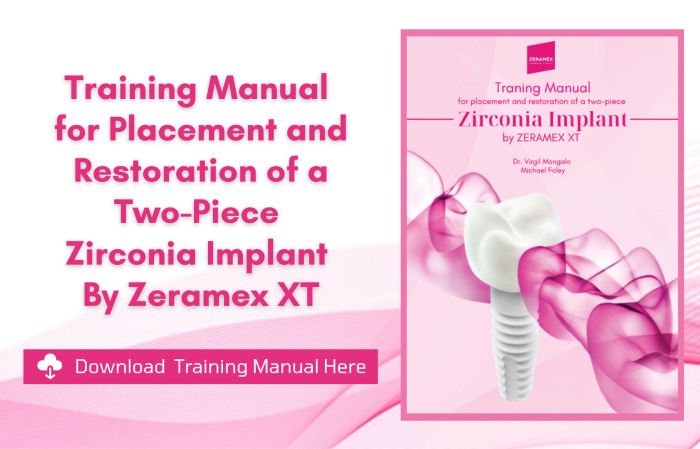Titanium vs Zirconia Dental Implants
Dental implants in NYC can be made from titanium or zirconium. We use the highest quality medical grade titanium or titanium alloy dental implants, the same materials used for other bone implants and orthopedic joint replacements.
Dr. Navid Rahmani is an internationally recognized, Board Certified Periodontist and best-rated dental implant specialist. All procedures are performed in our Midtown NYC dental center on Upper East Side, NYC.
Titanium Implants
- Metal-Based
- Biocompatible
- Coated to prevent corrosion
- Post coated with hydroxyapatite
Zirconium Implants
- Non-metal based
- Helps to discourage the buildup of plaque and tartar around the implant
- Lower the risk of gum disease
- Cosmetically pleasing result due to the natural white tooth color of this material
Why Are Dental Implants Made from Titanium?
Most dental implants including mini dental implants, single tooth implants, and full dental implants we are using in the NYC Dental Implant Center, are made from titanium. This metal has numerous beneficial qualities and is widely used in the medical industry.
Unlike other metals, dental implants made of titanium are highly biocompatible with the body and are very unlikely to be rejected.
An implant post can be sprayed with plasma or is etched to create a greater surface area to bond with the bone. It can also be coated with hydroxyapatite, a substance that is found in natural bone.
Side Effects of Using Titanium Dental Implants
An allergy to implants made of titanium is incredibly rare. It is difficult to test for accurately, but it is possible that a very tiny percentage of people may have an allergic reaction to titanium implants or one of the metals used in titanium alloy.
Our dental office only uses top-quality dental implants from well-known dental companies. These have been extensively tested for strength and safety and are made from top-quality medical-grade titanium or titanium alloy, the same materials used for other bone implants and orthopedic joint replacements.
Have Metal Allergies? Use Zirconia Dental Implants
If you already have metal allergies or sensitivities or are concerned about the prospect of having any metal in your mouth. In that case, zirconia metal-free dental implants might be a possible option. These are extensively tested and are FDA approved. Zirconia Implants have been used in Europe for many years.
When Should I Choose a Zirconium Dental Implant?

Holistic Approach to Dental Health
Many patients view zirconium dental implants as a more holistic approach to dental health, particularly for anyone who does not wish to have any metal in their body.
Some periodontists favor using zirconia dental implants as the design helps to discourage the buildup of plaque and tartar around the implant and could help lower the risk of gum disease.
What About the Cost?
Because titanium dental implants are more widely produced, the costs tend to be more reasonable, whereas ceramic dental implants are a more specialized product reflected in the price.
Insurance Coverage
Initially, insurance companies classified dental implant surgery as a cosmetic procedure, but now it’s more widely recognized as an essential service. As such, more dental insurance companies are covering at least a portion of the costs, for example, the implant crown.
If you choose an experienced and highly trained implant dentist such as Dr. Rahmani and look after your dental implant correctly, you should be able to enjoy the results for years or even for life.
How Does This Compare with Zirconia Dental Implants?
Zirconia dental implants are a much newer invention, but they have been used regularly in Europe for quite some time now. In comparison, Zirconia Implants have only been used in the United States for the last decade or so. Because they are still a relatively new invention, there is much less research into the long-term performance of zirconia dental implants. Still, all indications show that it is a highly effective material.
Initially, zirconia dental implants tended to be in a single unit that included the implant post and the abutment, but nowadays, some two-piece zirconia dental implants are available. Like titanium dental implants, zirconia dental implants integrate exceptionally well with the jawbone and are highly biocompatible and hypoallergenic.
Zirconia Ceramic Material Resistant to Plaque
Also, the smooth ceramic material of zirconia is quite resistant to plaque, so it can be a more hygienic solution, especially when a one-piece dental implant is chosen.
Another factor is to consider when selecting your dental implant system is its location in the mouth. For example, if you need to replace a front tooth, a zirconia dental implant could be a better solution. Zirconia’s natural white color can be more suitable in specific situations where aesthetics is critical.
Some people have naturally thinner gum tissue and where the metal color of the titanium alloy implant could shine through, which wouldn’t be very appealing when restoring a front tooth. Zirconia eliminates these problems, ensuring a high-quality outcome.

